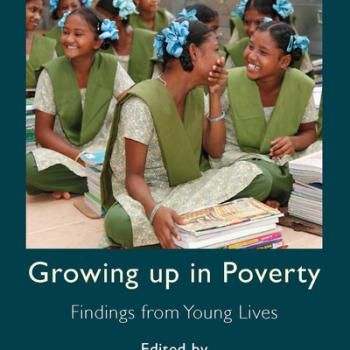Publication Information

This chapter provides a concise summary of the book which draws together detailed survey and qualitative evidence collected over 10 years about children?s lives between the ages of 5 and 15 and demonstrates how changes and opportunities during middle childhood can affect children?s development and well-being. While the evidence comes from children in four specific countries, it reflects trends typical of other low- and middle-income countries. What does the Young Lives evidence tell us about different groups of children growing up in poverty, and how can we best use that evidence to promote children?s well-being and development? The UN?s High-Level Panel Report (2013) challenges us to keep faith with the original promise of the MDGs ? we must move, it argues, from trying to reduce poverty to ending poverty and hunger - ?to leave no one behind? in securing well-being, human rights, and economic opportunities. But what does that mean in practice? There will inevitably be a process of policy discussion and policy making as we work towards achieving these aims. How can evidence such as we have presented from Young Lives help in that process? Where are the gaps in knowledge that still need to be filled?
The final published version of the chapter is available on the publisher's website.
Reference:
Bourdillon, Michael and Jo Boyden (2014) 'Reflections: Inequality, School and Social Change', in Michael Bourdillon and Jo Boyden (eds) Growing up in Poverty: Findings from Young Lives (pp. 269-280). Basingstoke: Palgrave Macmillan.

This chapter provides a concise summary of the book which draws together detailed survey and qualitative evidence collected over 10 years about children?s lives between the ages of 5 and 15 and demonstrates how changes and opportunities during middle childhood can affect children?s development and well-being. While the evidence comes from children in four specific countries, it reflects trends typical of other low- and middle-income countries. What does the Young Lives evidence tell us about different groups of children growing up in poverty, and how can we best use that evidence to promote children?s well-being and development? The UN?s High-Level Panel Report (2013) challenges us to keep faith with the original promise of the MDGs ? we must move, it argues, from trying to reduce poverty to ending poverty and hunger - ?to leave no one behind? in securing well-being, human rights, and economic opportunities. But what does that mean in practice? There will inevitably be a process of policy discussion and policy making as we work towards achieving these aims. How can evidence such as we have presented from Young Lives help in that process? Where are the gaps in knowledge that still need to be filled?
The final published version of the chapter is available on the publisher's website.
Reference:
Bourdillon, Michael and Jo Boyden (2014) 'Reflections: Inequality, School and Social Change', in Michael Bourdillon and Jo Boyden (eds) Growing up in Poverty: Findings from Young Lives (pp. 269-280). Basingstoke: Palgrave Macmillan.

